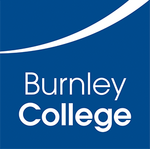Chemistry
A Level • Level 3
Chemistry
A Level • Level 3Type of LearningSchool Leaver
Course CodeA3442
Study ModeFull Time
Duration2 years
Awarded ByOCR
Location ByBurnley College
SHARE COURSE
Have a question? Get in touch!
Or call us on 01282 733373
About the course
This course is essential for students who intend to progress onto University to study Medicine, Dentistry and a range of other scientific degrees. Over the two year course, students study a variety of different topics across Organic, Inorganic and Physical Chemistry. These are comprised of six modules that are each divided into key areas: Over two years: Module 1: Development of practical skills in chemistry •Practical skills assessed in a written examination •Practical skills assessed in the practical endorsement Year 1: Module 2: Foundations in chemistry •Atoms, compounds, molecules and equations •Amount of substance •Acid–base and redox reactions •Electrons, bonding and structure Module 3: Periodic table and energy •The periodic table and periodicity •Group 2 and the halogens •Qualitative analysis •Enthalpy changes •Reaction rates and equilibrium (qualitative) Module 4: Core organic chemistry •Basic concepts •Hydrocarbons •Alcohols and haloalkanes •Organic synthesis •Analytical techniques (IR and MS) Year 2: Module 5: Physical chemistry and transition elements •Reaction rates and equilibrium (quantitative) •pH and buffers •Enthalpy, entropy and free energy •Redox and electrode potentials •Transition elements Module 6: Organic chemistry and analysis •Aromatic compounds •Carbonyl compounds •Carboxylic acids and esters •Nitrogen compounds •Polymers •Organic synthesis •Chromatography and spectroscopy (NMR) Students gain practical skills throughout the course. These are assessed in the written examinations and in the practical endorsement which are a series of 12 required lab practicals set by OCR and assessed over the two years.
Type of LearningSchool Leaver
Course CodeA3442
Study ModeFull Time
Duration2 years
Awarded ByOCR
Location ByBurnley College
Start Date/s
02/09/2024
Entry Requirements
At least five GCSEs at grade 5 or above, including both English and Maths. A minimum of a grade 66 in GCSE Dual Science or a grade 6 in GCSE Chemistry.
Modules
Module 1: Development of practical skills in chemistry •Practical skills assessed in a written examination •Practical skills assessed in the practical endorsement Year 1: Module 2: Foundations in chemistry •Atoms, compounds, molecules and equations •Amount of substance •Acid–base and redox reactions •Electrons, bonding and structure Module 3: Periodic table and energy •The periodic table and periodicity •Group 2 and the halogens •Qualitative analysis •Enthalpy changes •Reaction rates and equilibrium (qualitative) Module 4: Core organic chemistry •Basic concepts •Hydrocarbons •Alcohols and haloalkanes •Organic synthesis •Analytical techniques (IR and MS) Year 2: Module 5: Physical chemistry and transition elements •Reaction rates and equilibrium (quantitative) •pH and buffers •Enthalpy, entropy and free energy •Redox and electrode potentials •Transition elements Module 6: Organic chemistry and analysis •Aromatic compounds •Carbonyl compounds •Carboxylic acids and esters •Nitrogen compounds •Polymers •Organic synthesis •Chromatography and spectroscopy (NMR) Students gain practical skills throughout the course. These are assessed in the written examinations and in the practical endorsement which are a series of 12 required lab practicals set by OCR and assessed over the two years.
Assessment
Throughout this course you will be assessed in the following ways; - Through completion of weekly homework - End of topic assessments - Formal assessments - End of year externally marked exam papers. Year 1 - 2 papers - Breadth in Chemistry - Depth in Chemistry Year 2 - 3 papers - Periodic table, elements and physical Chemistry - Synthesis and analytical techniques - Unified Chemistry
Careers & Progression
With an A Level in Chemistry, this can lead you onto a variety of different career options. It is an essential requirement if you would like to study Medicine at University and most other scientific based degrees. With an A Level in Chemistry, this can open many doors in terms of career option pathways. Students can go onto study for example; medicine, dentistry, optometry,veterinary medicine, teaching, patent law, accountancy and scientific research.
Additional Details
Equipment Supplied
For each topic, students are provided with a detailed note booklet and also a question pack of past paper questions to assess their knowledge and understanding of the topic. These supplement the OCR textbook well and are an extremely useful revision aid.
Enrichment Activities
In addition to theory and practical based lessons, students here at Burnley College also participate in a variety of enrichment activities which include; taking part in the Royal Society of Chemistry annual Olympiad, CREST awards, Honours programme and medical placements in local Hospitals to gain valuable experience.
SHARE COURSE
Have a question? Get in touch!
Or call us on 01282 733373

















